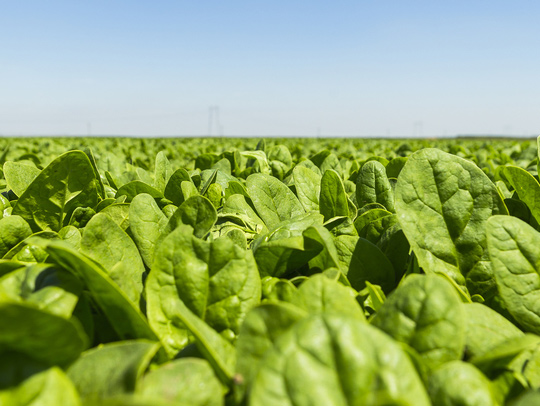FDA Announces Targeted Sampling, Additional Efforts to Enhance the Safety of Leafy Greens
September 9, 2022 | 7 min to read

The U.S. Food and Drug Administration (FDA) is committed to enhancing the safety of leafy greens through continued implementation of the Leafy Greens STEC Action Plan (LGAP). As part of this effort the FDA is announcing targeted sampling of leafy greens grown on farms and ranches during the fall 2022 harvest season in the Salinas Valley region of California, releasing results from a 2021 sampling assignment, and providing an update on other work under the action plan.
One key aspect of the LGAP is sampling efforts that seek to detect and prevent contaminated product from reaching consumers and help leafy greens growers and processors identify practices or conditions that may present microbial risks so they can strengthen the microbiological safety of their operations.
During the fall 2022 harvest season the FDA plans to collect about 240 lettuce samples at farms/ranches in the Salinas Valley. These farms/ranches were identified by traceback investigations in recent years as being potentially associated with a foodborne illness outbreak in which lettuce or leafy greens were the likely or suspect food vehicle. The FDA also may collect environmental samples such as water, soil, and scat, as appropriate, based on observations made at the time of sampling and a farm/ranch’s past inspection history. All samples will be tested for Salmonella spp. and E. coli O157:H7 and sampling will begin in mid-September 2022 and run through October 2022.
FY21 Assignment Summary Report
In 2021, the FDA conducted a different leafy greens sampling assignment and is releasing a summary report of the results. As part of this assignment, the agency collected lettuce from commercial coolers in the Salinas Valley growing area in California and tested samples for E. coli O157:H7 and Salmonella spp. between May and November of last year. The report describes the agency’s detection of Salmonella enterica in one green leaf sample and STEC in two other samples. In all cases, potentially contaminated product was destroyed and follow-up inspections were conducted.
Leafy Greens STEC Action Plan Update
Continued outbreaks and ongoing concerns about leafy green contamination emphasize the need for steadfast vigilance related to prevention across the supply chain. Over the last two years the agency has taken steps to enhance the safety of leafy greens through the Leafy Greens STEC Action Plan (LGAP), which can be found on the updated LGAP webpage. The web update expands on the work the FDA has done, collaboratively with partners in the public and private sectors, to prioritize inspections and surveillance sampling, share data and research, conduct root cause investigations, and build relationships that have contributed to enhancing our collective understanding of the issues associated with leafy green contamination.
Notably over the last year, the agency has:
- Published a proposed rule addressing pre-harvest agricultural water provisions of the Produce Safety Rule for covered produce other than sprouts. In addition, the agency has released resources and participated in engagement opportunities to help stakeholders better understand the proposed requirements.
- Continued to work closely with regulatory and industry partners in California to promote and offer technical assistance on the California Food Safety Roadmap and the California Agricultural Neighbors Interim Report on best practices to help enhance localized food safety efforts.
- Further refined a pre-harvest agricultural water treatment efficacy protocol, co-developed with the Environmental Protection Agency, to support pesticide registration of antimicrobial chemicals.
- Participated in several activities to advance testing methodologies, data-sharing, and research priorities as outlined in the action plan.
Additional information on the progress being made on the action plan can be found on our website.
Looking Ahead
Over the next two months, multi-disciplinary food safety experts from across the FDA will be visiting with leafy greens producers in California to learn more about leafy greens operations. Recent outbreaks have raised concerns about the sanitary design of harvest equipment and how field production and processing practices may be contributing to contamination events. These visits are critical to enhancing our collective understanding of the complexities of leafy greens production in order to further inform our work under the LGAP.
Food safety is a shared responsibility, and the FDA is committed to continuing to work collaboratively with our regulatory partners, growers, processors, retailers, and the broader agricultural community to enhance leafy green safety through implementation of the LGAP.
